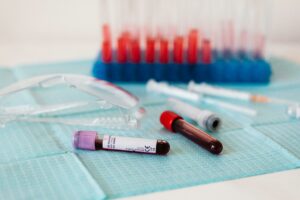Learn the Signs and Symptoms of Colon Cancer

Colon cancer develops when dangerous cells in the colon (large intestine) or rectum (the section of the large intestine that attaches to the anus) proliferate uncontrollably. Among the uncomfortable symptoms of the disorder are changes in bowel habits, blood in the stool, stomach pain, exhaustion, and loss of appetite.

Colon cancer does not always cause symptoms until it has spread. Screening procedures, such as a colonoscopy, can aid in the early detection of colon cancer, when it is easier to cure. If you suspect you have colon cancer symptoms, make an appointment with your healthcare professional to be tested. Early diagnosis allows you to begin therapy sooner, which can improve your symptoms and life expectancy.
Local Signs and Symptoms
Polyps—tissue growths that can form in the colon or rectum—cause the majority of colon malignancies. Polyps are often benign (non-cancerous) and can be removed safely by a healthcare expert. If left untreated, some polyps can develop and divide abnormally, resulting in the formation of a malignant tumor.
Early-stage colon cancer usually does not create any visible symptoms. When symptoms do appear, they usually impact the area where the cancer originated or is located, which is referred to as “local symptoms.” Local symptoms of colon cancer appear in the colon and rectum and can include changes in bowel motions and stool, stomach pain, and bloating.
Bowel Habits Modifications
Although most people have occasional changes in their bowel movements, colon cancer can produce long-term abnormalities that last more than a few days. If you notice changes in your bowel movements, you could be suffering from:3 • Constant diarrhea or constipation • Urgency to use the restroom
• Pain or strain during bowel movements
• The desire to pass stool after you’ve already passed it (known as an incomplete bowel movement)
Stool with Blood
Rectal bleeding or blood in the stool might be an indication of colon cancer.
• A stool with streaks of brilliant red blood or a darker, tar-like look
• Blood stains in the toilet bowl
• Blood on toilet paper after wiping
Bloody stools or rectum bleeding can be concerning, but they are not always indicative of colon cancer. Hemorrhoids and anal fissures, for example, can also induce intestinal bleeding. Bloody stools, on the other hand, are significant, and if you observe blood in your bowel movement, you should always contact a healthcare specialist to determine the reason of this symptom.


